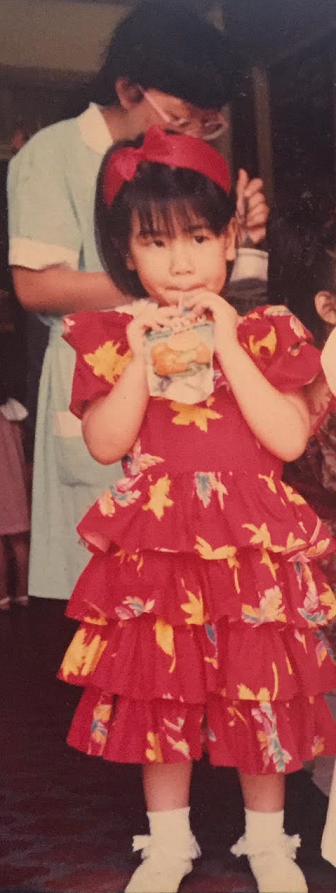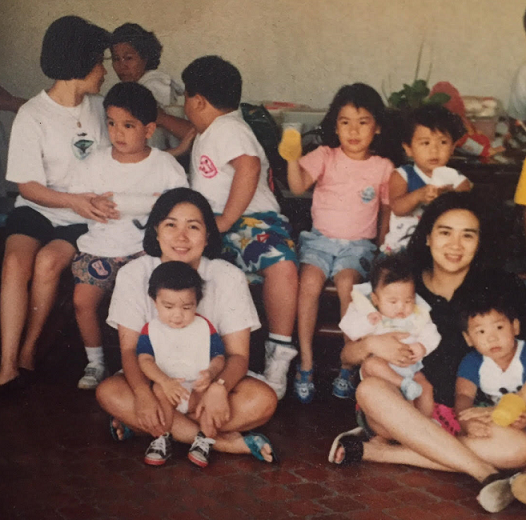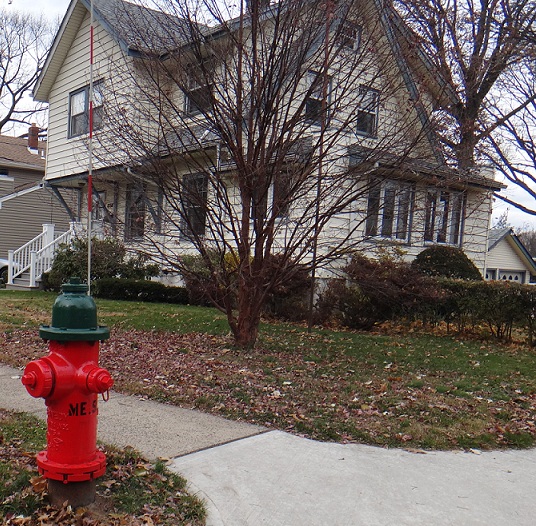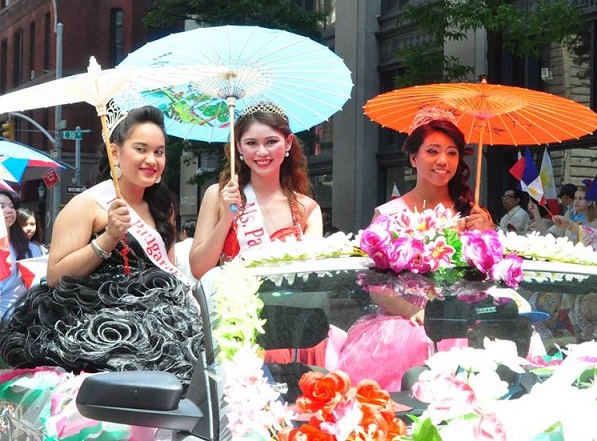The master-maid relationship happens in some Philippine families

The author as a young girl, her nanny behind her. The ‘yaya’ is always hovering nearby in case the child needs anything. It could be glass of water or a runny nose that needs to be wiped.
By Tiara Camille Teruel
They were the unsung heroes of our household. The protectors of our children and the sounding boards of our parents. They woke us up in the morning, made us food, bathed and dressed us and got us to school every day. They cleaned our homes, watered our gardens, bought our groceries, washed and ironed our clothes, and even brushed our hair at night. They became part of our lives and so intricately woven into our daily activities that we seemingly can’t do anything without them.
These were our domestic help workers. Our maids, ‘yaya’ or nannies, cooks, drivers, gardeners, and all-around helpers.
Having domestic help in the Philippines is normal and it’s available to not only the upper class. It’s so common, that we were even taught in school how to manage our household staff as part of Home Economics class.
Some are viewed lovingly as one of the family, but most are overworked and undervalued. Many live in a vicious cycle of fear, despondence and uncertainty. Others, as I have been recently reminded, are imprisoned in abusive households masquerading as normal homes.
In my home growing up, they were respected and treated fairly. They were employed by us but we did not own them and this was made clear to us from a young age. Many stayed through generations, were shared by relatives and even had their families staying in a “maids home” on our property. They were not only compensated but appreciated.
My ‘yaya’ was named Genilyn. I looked up to her and adored her. She made a huge impact on how I now treat and care for others just by the example she showed and the care she gave me. But because we had compassion in our family and was taught to have empathy for our domestic help, I grew up not realizing some homes did not operate in the same way.
So you can imagine how I felt while reading the cover story written by Filipino American journalist Alex Tizon for The Atlantic magazine. In Tizon’s personal essay, “My Family’s Slave,” he talked about his family’s “slave.” I choked up and closed the computer immediately after, as if that would help relieve the tension I was feeling. It struck an emotional chord. Here’s a lady who was a second mother to this family and was physically and emotionally abused!
What also bothered me was the excuse people were saying about his family’s actions. That it was a cultural thing and it was somehow the norm. The article painted a nasty picture of slavery that stigmatizes a culture normally known for compassion and care. This led me to the question, is this really a cultural issue? Is cultural change imminent?

In the author’s family, the nannies are the helping hands to mothers (foreground) with too many kids to handle
Perhaps I aim to defend us Filipinos from the terrible views being stated and a generalization this says about our culture, or those who have domestic help – but to me, this was not a normal thing. Normal is found somewhere in the middle and this was one of the extreme cases.
I agree there needs to be a cultural change within the traditional values of taking the poor’s rights for granted, but I do not agree with using “cultural norm” as an excuse for the lack of compassion.
Being vile is deep rooted in someone’s character and even though it could be amplified by one’s environment, it is not our culture. It happens everywhere. There is no excuse for treating another life like the way they did.
Lola in Tizon’s story, did not have any choices. She was promised wages, lured by a better life and was not allowed to go home even after she had asked to. She was held captive in a foreign land. She was a slave, and it wasn’t right!
There’s a difference between domestic help being normal in the Philippines and ACTUAL slavery. Domestic help is a normal practice, that is, if the domestic worker is compensated as required by law; slavery is not.
Not only would this family be breaking laws for domestic helper’s rights if they were living in the Philippines now, not to mention facing serious human trafficking allegations, but they were actually breaking immigration laws in the United States.
Abuse happens
I am not dismissing the fact that abuse happens. The United Nation’s International Labour Organization claims that domestic workers are some of the most likely to face abuse and exploitation in their place of work. There are 53 million domestic workers worldwide. Only 12 percent of Asian countries guarantee minimum wages for domestic helpers — a figure that stands at just one percent in the Middle East — and the Philippines is one of them.
In 2013, after a 19-year effort by lawmakers to guarantee the rights and benefits of the ‘kasambahay’ or household workers, a law was finally established. RA 10361 or the Domestic Worker’s Act was signed by President Benigno Aquino, and it guarantees the protection, security and well-being of household service workers (HSWs). Under the law, domestic work is no longer a part of the informal sector and sets a minimum monthly wage. After a month of service, a kasambahay should be covered by the Social Security System (SSS), Employees Compensation Commission (ECC), Philippine Health Insurance Corporation (PhilHealth), and Pag-IBIG.
Many reports of abuse towards Filipino domestic workers are also abroad. Because 25 percent of the people in the Philippines live below the poverty line; more than 10 million have immigrated overseas. One of 3 Filipinos deployed overseas are laborers and unskilled workers which include domestic helpers, cleaners and manufacturing laborers. According to The Manila Times in 2014, the personal remittances from overseas Filipino workers (OFWs) are at an all-time high at $26.93 billion or nearly 15 percent of the country’s GDP.
I agree more needs to be done about the abuse of authority everywhere.
This problem is not necessarily only cultural, but a deep-rooted issue in humanity. Abuse will continue in any household where the foundational family values are not built out of compassion. There is a long road ahead in terms of making sure people have compassion with one another, especially with those in a class below them. But, there are also many families out there who do right by their domestic help and give them good experiences they would not otherwise be able to have.
Copyright © 2017 The FilAm
Tiara Camille Teruel is a talent agent and business owner in Los Angeles. In October 2015, she was featured in Variety Magazine as one of Hollywood’s New Leaders. She was born in Manila, lives part time in New York and is a regular contributor to The FilAm.










